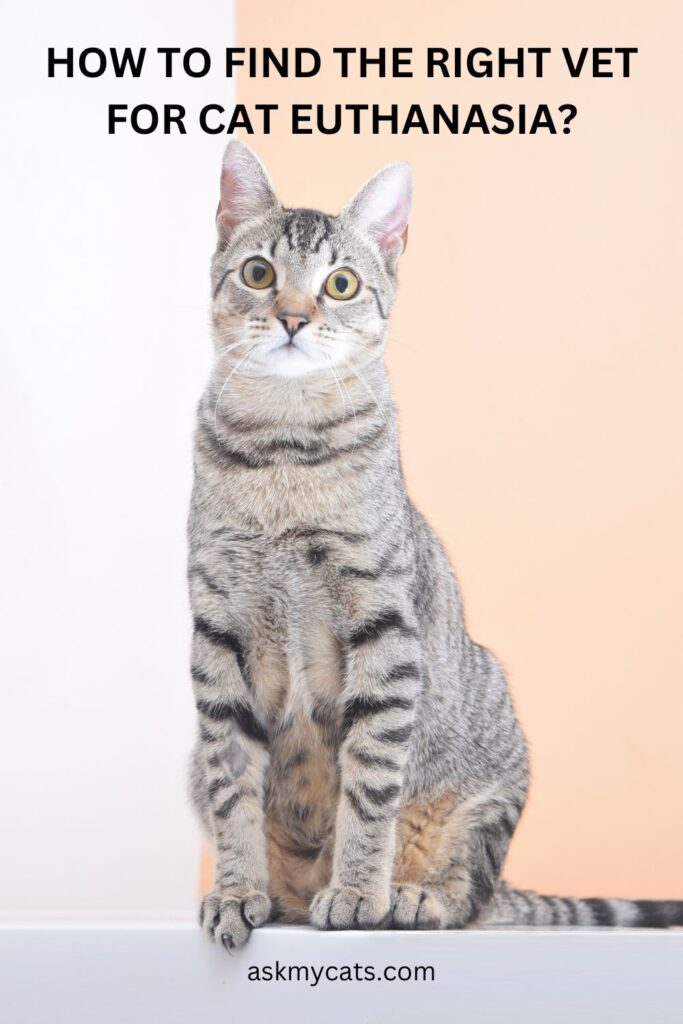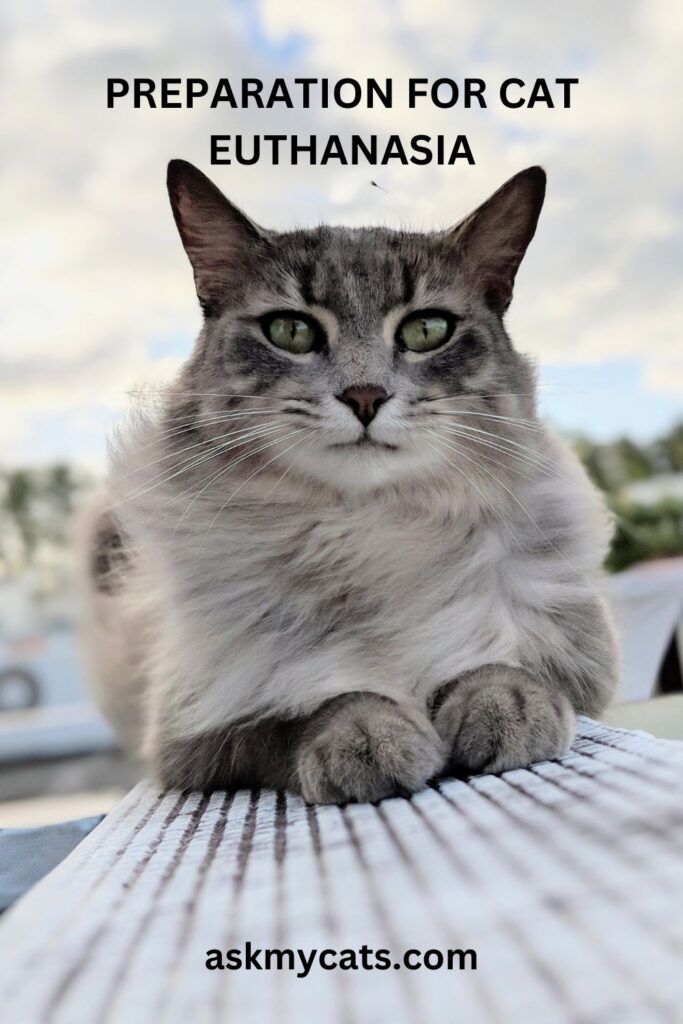Euthanasia, the humane ending of a cat’s life, is a decision that many owners of pet cats may face when their beloved feline is suffering from a terminal illness or a painful condition.
While it’s a heart-wrenching decision to make, veterinary doctors play a crucial role in ensuring that the process is carried out safely and compassionately.
In this article, we will explore the vital role of veterinary doctors in the euthanasia process for cats, including their ethical responsibilities, the different methods used to perform euthanasia, and how they provide emotional support to pet owners during this difficult time.
Key Takeaways
- Veterinary doctors play a crucial role in ensuring that euthanasia is carried out safely and compassionately.
- Tips for finding a compassionate and experienced vet for cat euthanasia include asking for recommendations, doing research, scheduling a consultation, considering communication style, evaluating facilities, and trusting instincts.
- Essential questions to ask a veterinary doctor before making end-of-life decisions for a cat include treatment options, prognosis, benefits and risks of treatment options, symptom management, appropriateness of euthanasia, what to expect during the euthanasia process, and whether the owner can be present during the process.
- Veterinary doctors have ethical responsibilities to ensure that euthanasia is performed in a humane and compassionate manner, with respect for the cat’s welfare and the emotional well-being of the pet owner.


Give Your Cat the Perfect Day
Get the Free Ebook!
How To Find The Right Vet For Cat Euthanasia?

Choosing the right veterinary doctor for cat euthanasia can be a difficult and emotional decision for pet owners.
Here are some tips to help you find a compassionate and experienced vet who can guide you through this difficult time:
- Ask for recommendations: Reach out to friends, family members, or local cat rescue groups for recommendations. They may have had experience with a vet who provided compassionate care during their pet’s euthanasia.
- Do your research: Research local veterinary clinics in your area that provide end-of-life care and euthanasia services for cats. Check their website, online reviews, and social media to see if their philosophy and approach align with your values.
- Schedule a consultation: Once you’ve identified a few potential vets, schedule a consultation to discuss your cat’s condition and your concerns. This is an opportunity to ask questions and get a sense of their experience and compassion.
- Consider their communication style: Choosing a vet who communicates clearly, listens to your concerns, and shows empathy for your cat’s suffering is essential.
- Evaluate their facilities: Make sure the clinic is clean, comfortable, and equipped with the necessary equipment to provide compassionate care during the euthanasia process.
- Trust your instincts: Ultimately, trust your instincts and choose a vet who makes you feel comfortable and confident that your cat will be treated with compassion and dignity during their final moments.
By following these tips, you can find a veterinary doctor who will provide your cat with the compassionate care they deserve during this difficult time.
Must Read: How Much Does It Cost To Euthanize A Cat?
What Questions To Ask Before Making End-Of-Life Decisions For Cats?
Making end-of-life decisions for cats can be a difficult and emotional process. When faced with this situation, it’s important to ask the right questions to ensure you make the best decisions for your beloved feline.
Here are some essential questions to ask your veterinary doctor before making any end-of-life decisions for your cat:
- What are my cat’s treatment options?
- Your vet can help you understand the available treatment options, their potential outcomes, and the associated costs.
- What is my cat’s prognosis?
- Your vet can help you understand your cat’s medical condition, including the severity of their illness, the expected course of the disease, and their quality of life.
- What are the potential benefits and risks of treatment options?
- Your vet can help you weigh the benefits and risks of any treatment options to make an informed decision.
- What are my cat’s current symptoms, and how can we manage them?
- Your vet can help you manage your cat’s symptoms, such as pain or discomfort, with medication or other palliative care options.
- When is euthanasia appropriate for my cat?
- Your vet can help you understand when euthanasia may be the most appropriate choice for your cat, based on their medical condition and quality of life.
- What can I expect during the euthanasia process?
- Your vet can explain the process of euthanasia, including the different methods available, the risks involved, and what to expect during the procedure.
- Can I be present during the euthanasia process?
- Your vet can discuss whether you can be present during the euthanasia process and what to expect during this emotional time.
Asking these questions can help you make informed decisions about your cat’s end-of-life care and ensure that their final days are as comfortable and peaceful as possible.
Must Read: Is It Legal To Euthanize A Healthy Cat?
Role of Veterinary Doctor In Euthanasia

Veterinarians play a critical role in the euthanasia process for pets, including cats. They are responsible for assessing the cat’s health and determining if euthanasia is the best course of action based on the cat’s medical condition, quality of life, and the pet owner’s wishes.
Once the decision is made to perform euthanasia, the veterinarian is responsible for performing the procedure safely, humanely, and compassionately.
Assessing The Cat’s Health
The first step in the euthanasia process is for the veterinarian to assess the cat’s health and medical condition.
They will examine the cat, review medical records, and talk with the pet owner to determine if the cat is suffering from a terminal illness or a painful condition that cannot be treated or managed. They will also consider the cat’s quality of life and the pet owner’s wishes.
Determining If Euthanasia Is The Best Course Of Action
If the veterinarian determines that the cat’s condition is terminal or the pet owner decides that euthanasia is the most humane course of action, the veterinarian will discuss the different options available for euthanasia.
They will explain the benefits and risks of each method and help the pet owner make an informed decision.
Interesting Read: Alternatives To Euthanasia For Terminally Ill Cats
Performing The Procedure
Once the decision is made to perform euthanasia, the veterinarian will perform the procedure in a safe and humane manner. They will administer a sedative to help the cat relax and reduce any pain or discomfort.
Then, they will administer a final injection to stop the cat’s heart, causing them to pass away peacefully and painlessly.
In addition to performing the procedure, it’s essential for veterinarians to be compassionate and understanding when working with pet owners during this emotional time.
They must provide emotional support and be available to answer any pet owner’s questions. It’s also important for veterinarians to respect the pet owner’s wishes and provide them with the information they need to make an informed decision about their pet’s end-of-life care.
Must Read: Choosing the Right Euthanasia Option: At-Home Vs. Vet Clinic
Interesting Read: What Are The Different Methods Of Cat Euthanasia?
Euthanasia Decision-making Framework
| Step | Description |
|---|---|
| Step 1: Assessment | Evaluate the animal’s medical condition, prognosis, and quality of life |
| Step 2: Communication | Discuss euthanasia options with the owner, including benefits, risks, and alternatives |
| Step 3: Informed consent | Obtain consent from the owner for euthanasia, including understanding of the procedure and its implications |
| Step 4: Method selection | Obtain consent from the owner for euthanasia, including an understanding of the procedure and its implications |
| Step 5: Procedure | Perform euthanasia using proper technique, equipment, and medication dosage |
| Step 6: Aftercare | Provide guidance and support to the owner regarding body care and final disposition options |
| Step 7: Documentation | Properly document the euthanasia process, including the date, time, method, and owner’s consent |
Must Read: Where To Euthanize A Cat For Free Or Cheap?
Ethical Considerations
Performing euthanasia on a pet cat is a sensitive and emotional decision that involves various ethical considerations. Veterinarians have an ethical obligation to ensure that the decision to euthanize a cat is based on sound reasoning and is in the best interest of the cat.
One of the primary ethical considerations for veterinarians is ensuring that the Cat is suffering and that there is no reasonable alternative.
Veterinarians must conduct a thorough examination of the cat’s medical condition and quality of life to determine if euthanasia is the most humane and compassionate option.
If the cat is experiencing chronic pain, has a terminal illness, or has a poor quality of life with no reasonable chance of improvement, euthanasia may be the best course of action.
Another important ethical consideration for veterinarians is to provide humane and dignified euthanasia.
This means that the procedure must be performed in a manner that is as comfortable and stress-free as possible for the cat.
The veterinarian must use appropriate medications and techniques to minimize the cat’s discomfort and ensure that the cat is calm and relaxed during the procedure.
The veterinarian should also be sensitive to the pet owner’s emotional needs and provide emotional support during the process. In addition to these considerations, veterinarians must also take into account the cultural and religious beliefs of the pet owner when performing euthanasia.
Some pet owners may have specific requests for how the procedure is performed or may have certain beliefs that impact their decision-making process.
It is the veterinarian’s responsibility to respect these beliefs and work with the pet owner to provide compassionate and respectful euthanasia.
Must Read: When To Put Your Cat Down? The Complete Checklist
Preparation For Cat Euthanasia

Preparing for cat euthanasia is a critical process that involves several steps to ensure that the cat passes away peacefully and painlessly.
Veterinarians must work closely with the pet owner to prepare both the cat and the family for the procedure.
1 – Talking About The Procedure With The Family Of The Cat
The first step in preparing for cat euthanasia is for the veterinarian to discuss the procedure with the pet owner. They will explain the process and answer any questions or concerns that the pet owner may have.
They will also provide information about the different options for aftercare, such as cremation or burial, and discuss the costs associated with these services.
2 – Preparing The Cat For Euthanasia
Once the pet owner has decided to proceed with euthanasia, the veterinarian will prepare the cat for the procedure.
This may involve administering sedatives to calm the cat and reduce any pain or discomfort. They may also place an intravenous catheter to ensure that the euthanasia medication is delivered quickly and effectively.
3 – Administering The Medication
During the euthanasia procedure, the veterinarian will be present to ensure that the cat passes away peacefully and painlessly.
They will administer the euthanasia medication, which will stop the cat’s heart, causing them to pass away peacefully and without any pain.
4 – Aftercare
After the procedure, the veterinarian will provide aftercare instructions to the pet owner, which may include information about cremation or burial services. They may also offer emotional support and resources for coping with grief and loss.
Must Read: What To Do After Cat Euthanasia?
Communication With Pet Owners
Effective communication is crucial in the veterinary profession, especially when it comes to discussing end-of-life care and euthanasia.
Veterinarians must be able to communicate clearly and compassionately with pet owners to help them make informed decisions about their pet’s care and ensure that they feel supported during this emotional time.
When discussing euthanasia with pet owners, veterinarians must provide accurate and honest information about the cat’s condition and the available treatment options. This allows the pet owner to make an informed decision about their pet’s care and understand the potential outcomes.
The veterinarian must also be able to explain the euthanasia procedure and answer any questions or concerns that the pet owner may have.
In addition to providing information, veterinarians must also provide emotional support to pet owners.
Must Read: How To Deal With Regret And Grief After Putting Cat To Sleep?
Euthanasia is a difficult decision, and pet owners may feel a range of emotions, including sadness, guilt, and anxiety. The veterinarian must be empathetic and supportive, providing comfort and guidance to help the pet owner cope with their emotions.
To help pet owners make an informed decision about euthanasia, veterinarians must take a holistic approach to the cat’s care. This involves assessing the cat’s overall health, quality of life, and any potential treatment options.
The veterinarian must explain the benefits and drawbacks of each option and help the pet owner weigh the risks and benefits.
Ultimately, the decision to euthanize a cat is a deeply personal and emotional one, and veterinarians must respect the pet owner’s wishes and provide compassionate care throughout the process.
By effectively communicating with pet owners and providing emotional support, veterinarians can help ensure that the cat passes away peacefully and with dignity and that the pet owner feels supported during this difficult time.
Interesting Read: The Impact Of Euthanasia Of Cat On Children
Frequently Asked Questions
Is euthanasia painful for the animal?
No, when performed correctly by a veterinarian, euthanasia is painless and peaceful for the animal.
How can I know if it’s time to consider euthanasia for my cat?
Your veterinarian can help assess your cat’s quality of life and advise on when it may be time to consider euthanasia.
Can I stay with my cat during euthanasia?
Yes, most veterinarians allow pet owners to stay with their cats during the euthanasia procedure.
What options do I have for aftercare?
You can discuss options for aftercare with your veterinarian, which may include cremation or burial services.
Is it okay to feel sad and grieve after euthanasia?
Yes, it is normal to feel a range of emotions, including sadness and grief, after euthanasia. It is important to seek support and take care of yourself during this time.
Final Words
Veterinarians play a crucial role in ensuring that the animal passes away peacefully and painlessly and that the pet owner feels supported throughout the process.
By providing accurate information, emotional support, and compassionate care, veterinarians can help pet owners make an informed decision about their pet’s end-of-life care and ensure that the animal passes away with dignity.
Interesting Read: Should I Stay With My Cat When It Is Euthanized?
References
- https://www.avma.org/resources-tools/pet-owners/petcare/euthanasia
- https://www.vet.cornell.edu/departments-centers-and-institutes/cornell-feline-health-center/health-information/feline-health-topics/euthanasia-what-expect-and-what-questions-ask-first
- https://www.ncbi.nlm.nih.gov/pmc/articles/PMC8068809/
